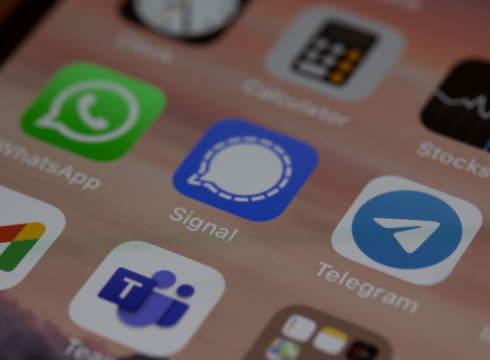Faking identity for procuring a SIM card or availing services of OTT communication apps may lead to imprisonment for a year or a fine of up to INR 50,000
To protect users from online frauds and other illegal activities, the DoT has introduced the new provisions in the draft Indian Telecommunication Bill, 2022
The bill has also proposed bringing OTT communication services under the definition of telecommunication services
Inc42 Daily Brief
Stay Ahead With Daily News & Analysis on India’s Tech & Startup Economy
Providing fake documents to procure a SIM card or faking identity while registering for over-the-top (OTT) platforms such as WhatsApp, Telegram, Signal and Telegram may reportedly lead to imprisonment for a year or a fine of up to INR 50,000.
To protect users from online frauds and other illegal activities, the Department of Telecommunications has introduced the new provisions in the draft Indian Telecommunication Bill, 2022, ET reported.
“This will help in preventing cyber frauds done using telecom services. Therefore, provisions related to identity have been included in the Bill at relevant places,” the ministry was quoted as saying in the explanatory note for the draft bill.
Under sub-section 7 of section 4 of the draft bill, telecom users will need to declare their identity. Moreover, misinterpretation of the identity has been defined as a cognisable offense.
Telecom Minister Ashwini Vaishnaw recently said that the new bill is positioned to counter cyber crime on multiple fronts. Along with that, robust Know Your Customer (KYC) compliance on part of OTTs will significantly help in reducing fraud, he added.
The draft telecommunication bill, which was released earlier this month, brings new-age services like OTT communication services under the definition of telecommunication services.
The Bill seeks to replace three laws – the Indian Telegraph Act, 1885, the Indian Wireless Telegraphy Act, 1933 and the Telegraph Wires (Unlawful Possession) Act, 1950.
Vaishnaw recently said that the new bill could be implemented as soon as the next six to ten months.
Although the proposed law has a provision for interception of OTT communication apps, the draft bill would not force decryption of messages on these messaging apps such as WhatsApp, Telegram and Signal, Vaishnaw said.
Interestingly, the government is also planning to introduce at least three more legislations to take the country’s digital regulatory system at par with the global standards, he said at another event recently.
Note: We at Inc42 take our ethics very seriously. More information about it can be found here.


